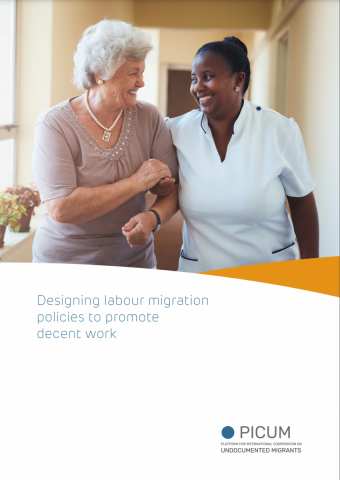Library
Designing labour migration policies to promote decent work
This policy brief addresses the question: How should labour migration policies and related work permits be designed in order to effectively promote declared and decent work and social inclusion? It begins with a brief analysis of the gaps and shortcomings in current schemes across Europe, in three main sections. Section 1 outlines how systems of limiting work permits to certain occupations and using labour market tests are not reflecting the reality of needs of employers, workers and communities. Section 2 considers how some key tendencies in how labour migration is organised risk to exacerbate these issues, and Section 3 gives some broader context, situating labour migration in broader socio-economic trends, in particular just transition and COVID-19 recovery. To provide a practical tool, an annex with some suggested indicators is also provided, together with a case study, to demonstrate how the list of essential characteristics and indicators can be used to assess existing policies.
